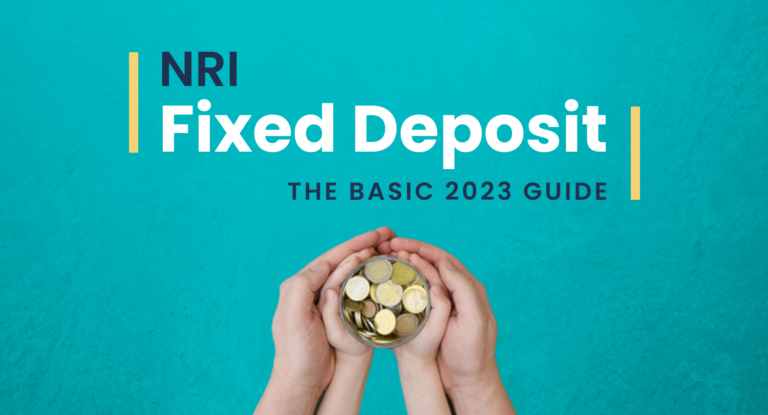Things To Keep In Mind Before Opening Nri Fixed Deposit

When it comes to managing finances from abroad, many Non-Resident Indians (NRIs) often ponder: “Is it wiser to plunge into the realm of Fixed Deposits (FDs) or to dabble in something more volatile like the stock market?” A tantalizing question, indeed! For those considering the serene stability of NRI Fixed Deposits, several vital factors must be meticulously contemplated. The allure of guaranteed returns is undeniably enticing, but the journey of investing is riddled with complexities that necessitate a thorough understanding.
Firstly, it is imperative to grasp the very essence of Fixed Deposits tailored for NRIs. These accounts are specifically designed to cater to the financial needs of Indians residing globally. They offer a risk-free investment avenue that guarantees a fixed rate of return over a predetermined period. The consistency and reliability of FDs resonate well with the cautious investor, yet they beckon a thorough evaluation before commitment.
Interest Rates: The Bedrock of Decision-Making
One of the paramount considerations must be the interest rates offered by various financial institutions. Interest rates can oscillate dramatically from one bank to another. Thus, a meticulous comparison is essential. Some banks may even offer special rates for NRIs, making it a veritable treasure hunt for the best deals. Are you willing to forgo substantial returns for convenience? This question deserves careful introspection.
Tenure: The Lengthy Consideration
The tenure of the fixed deposit is another significant factor. Most banks provide flexible tenures ranging from a mere seven days to several years. A longer tenure typically guarantees higher interest rates, but consider this: could tying up your funds for an extended period hinder your financial agility? Time is a double-edged sword in the world of finance. Weigh your options carefully before settling on a duration.
Tax Implications: Beware of Hidden Fees!
Understanding the tax implications on interest earnings is crucial. Non-Resident Indians must navigate the murky waters of taxation that varies according to the double taxation avoidance agreements (DTAA) with their country of residence. For example, did you know that while Indians are liable to a 40% tax on their FD interest, some countries may exempt this under certain conditions? Are you aware of how to maximize your benefits under these agreements? An astute knowledge of tax liabilities could save you a fortune.
Currency Risks: A Potential Roller Coaster
Currency fluctuations present another intriguing challenge. FDs denominated in Indian Rupees may look appealing, but the value of your investment can diminish due to currency depreciation against your base currency. Are you prepared for potential losses arising from unfavorable exchange rates? Keep your eyes peeled for currency exchange trends to better safeguard your investment.
Liquidity: The Financial Flexibility Factor
How liquid does your capital need to be? FDs, while offering security, may not be as liquid as other investment forms. Early withdrawal can attract penalties and reduced interest rates. Therefore, assess your liquidity requirements prior to opening an FD. A sudden financial emergency could place you in an uncomfortable position if your funds are locked away without easy access.
Financial Institution Reputation: Trustworthiness is Key
Choosing the right bank is akin to selecting a trusted ally in a competitive arena. The reputation of the financial institution plays a critical role. A bank with a solid track record and superb customer service is essential for ease of transactions and reliable support. Are you prepared to conduct thorough due diligence? Investigate reviews and seek recommendations from fellow NRIs before settling on a banking partner.
Online Banking Facilities: The Technological Advantage
In an age dominated by technology, access to online banking can significantly enhance your FD management. The convenience of online account opening, fund transfer, and monitoring interest accrual can make your life much easier. Does your selected bank offer robust digital infrastructure? Evaluate whether their online services are user-friendly and efficient.
Joint Accounts: The Power of Partnership
Are you considering opening an FD jointly with a family member or spouse? Joint accounts can provide additional advantages, such as increased deposit limits and enhanced security. However, it’s crucial to remember that the interest earned will still be subject to taxation based on the individual assessees. Open communication and shared financial goals must accompany such decisions. Is your partner on the same page as you regarding investment objectives?
Commitment to Financial Goals: A Crucial Retirement Plan
Finally, consider how this investment aligns with your long-term financial goals. The FD may not be the perfect fit for everyone, particularly those willing to embrace higher risk for potentially greater rewards. However, for those who seek stability in their financial future, having a Fixed Deposit as part of a diversified portfolio can be advantageous. Are your monetary ambitions clear? Understanding your needs can refine your investment strategy.
In conclusion, opening an NRI Fixed Deposit is a decision that extends beyond merely visiting the nearest bank. It requires a robust analysis of various interplaying factors, from interest rates to liquidity needs. Have you contemplated every angle thoughtfully? The interplay between risk, return, and personal financial strategy places a spotlight on the importance of informed decision-making. So next time you ask, “Should I invest in an FD?” remember, knowledge is not just power; it's the cornerstone of prudent investing!
Post a Comment for "Things To Keep In Mind Before Opening Nri Fixed Deposit"